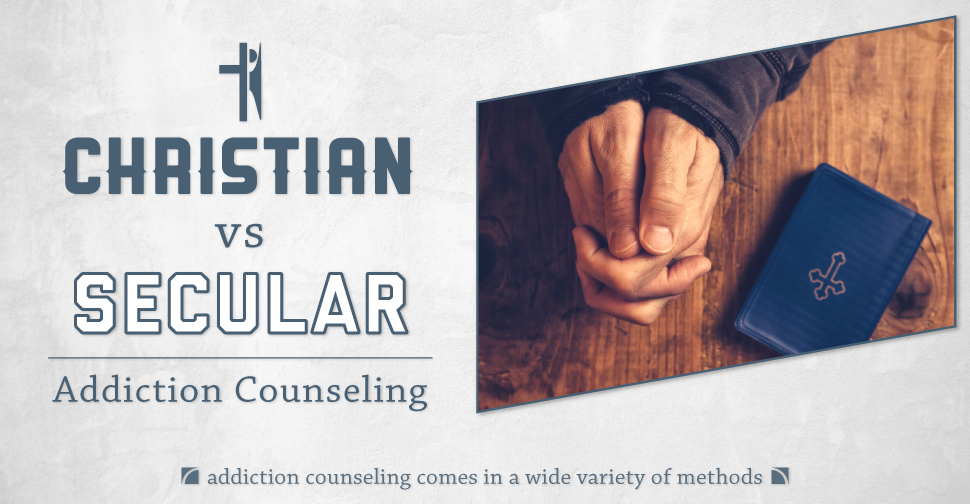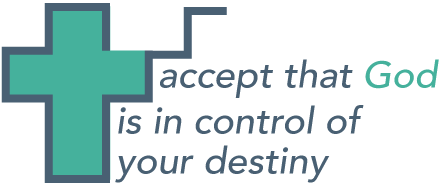
Addiction counseling comes in a wide variety of methods, including Christian-based counseling and secular counseling. Deciding between the two involves gauging the importance of the Christian faith in a person’s life. While there are differences between these two counseling types, there are also similarities. Both are worth fully understanding before coming to a decision on your treatment.
Christian Counseling Is One Of The Oldest Recovery Methods
The history of drug addiction recovery and its various counseling techniques is highly entwined with Christianity. One of the earliest known connections was made by Dr. Benjamin Rush in 1784. Rush found that his patients who struggled with alcohol addiction were more successful in their efforts to quit drinking if they utilized their faith in Christianity. This connection led to a variety of revivals in the proceeding decades that focused on helping those who suffered from alcohol addiction.
These revivals helped inspire the urban movement in 1872 and the formation of the Salvation Army in 1880. These groups reached out to those with harmful drinking patterns and helped them focus on their recovery. In 1897, the Keswick Colony of Mercy was formed, making it one of the first faith-based sobriety centers, though other groups, such as the Christian Home For Intemperate Men, served the same purpose.

As addiction therapy evolved, programs like Alcoholics Anonymous and Narcotics Anonymous were formed. As a result, a fair amount of addiction recovery remains highly linked to Christianity and faith-based recovery methods. However, secular counseling has emerged as an alternative to those who don’t want Christian counseling.
Christian Counseling Focuses On
Those who attend Christian-based counseling sessions are typically giving their life over to God’s will and trying to use His presence to manage their addiction. One of the first steps in Christian counseling, including 12-step recovery, is to accept that God is in control of their destiny and that surrendering their will to His desire is key to beating addiction.
The idea that drives many Christian-based addiction counseling sessions is to break their reliance on their own will (“Man’s Way) and encourages them to accept “God’s Way.” The philosophies that many, but not all, Christian counseling groups seek to break are the ideas that people are in control of their own destinies and can change without God’s help. Acceptance of God and his control over the world and destiny are crucial to success in Christian counseling.

Christian counseling also helps a person rebuild any lost connection with God or to overcome a lack in spirituality that may have occurred during their addiction. Christian counselors work hard to integrate important principles of Christianity with improved decision-making skills. These skills are designed to improve faith and build stronger coping skills. They are also designed to build a strong social group centered around faith and religion which helps maintain long-term sobriety.
Christian Counseling Utilizes Scientific Recovery Concepts
Although faith is an important part of Christian counseling, scientifically proven and accepted recovery techniques are also integrated, though some critics believe that they are not used enough within these methods. For example, detoxification management is used to manage withdrawal symptoms and make them tolerable. Psychiatric methods, which focus on Christianity and God, are also necessary. These sessions are designed to help assess any mental health problems and to manage them in a way that helps build a vital connection with God.

To help manage these symptoms, appropriate medication and behavioral control techniques are used. Alongside these methods are addiction education, adventure therapy, animal therapy, adherence to the 12-step program, and relapse prevention training. These methods work together with a Christian focus to help beat addiction in a way that increases spirituality according to the personal beliefs of the individual in counseling.
Secular counseling also focuses on these types of scientific and medical addiction therapy treatments. However, they replace the religious and spiritual focus of Christian counseling with a focus on building stronger social support and structures. While this is also a focus in Christian counseling, the type of social structures supported in secular addiction counseling vary.
Secular Counseling Focuses On Building Social Structures
As mentioned above, Christian counseling works on building a support group of people who follow a similar faith. Secular counseling works in a similar way, but doesn’t focus on faith and religion. Typically, those in secular counseling receive a mentor or a sponsor who helps keep them focused on recovery and maintains their accountability.
The responsibility of mentors is to serve as a role model, counselor, and support system that helps a person stay sober. Mentors and sponsors can be professionals, such as psychiatrists and psychologists, but they don’t have to be professional to be effective. They can simply have a caring attitude and the ability to strengthen a person’s resolve. Often, community-based outings are implemented to help them reintegrate with friends and family members.
Building a support group in this way is a major goal of secular counseling. It takes the place of Christian counseling’s focus on building social connections based on faith and replaces it by making connections based on sobriety. There are a variety of secular sobriety groups that are similar to 12-step programs, but without the religious aspect inherent in Christian counseling.
Abstinence Is A Key Component Of Both
Both Christian and secular counseling methods stress the idea that abstinence from alcohol and drugs is one of the most crucial steps in beating addiction. The exact method of abstinence doesn’t necessarily vary between Christian and secular counseling methods. However, some secular programs use what is known as the Minnesota Model of abstinence, one that focuses on the first five steps of the 12-step program and which integrates psychological and medical methods.

The major difference between Christian 12-step programs and the Minnesota Model is in the interpretation of the first five steps. In Christian counseling, the inherent faith and spirituality of the steps is emphasized, but in the Minnesota Model managing depression, anxiety, and other underlying mental health concerns becomes the focus. However, a large amount of secular therapy methods bypass any connection to the 12-step program and focus on the neurobiological reductionist method of promoting abstinence.
This method uses reduced doses of replacement medicines to help decrease addiction severity slowly and manage the negative symptoms associated with withdrawal. The idea is that the brain will naturally rebalance after these substances are eliminated and that psychological therapy is crucial to beating addiction. While the Minnesota Model does utilize psychological treatments as well, combining the physical and the mental is the main goal of neurobiological therapy.
The Differences Ultimately Lie In Faith
It should be obvious by now that the goals of Christian addiction counseling and secular addiction counseling are essentially the same. However, the main difference lies in the type of faith emphasized in each. In Christian counseling, faith is placed in God’s will and its ability to transform a person’s life. In secular counseling, faith is placed more on man’s ability to change their own destiny and to make positive changes with their own will.
Ultimately, though, positive success in either method will have the same result: freedom from addiction. So take stock of your personal faith and ask yourself a few questions before making a decision:
- Is my faith in God stronger than my self belief?
- Have I shown ability to change myself in the past?
- Do I find strength in faith, strength I struggle to obtain without it?
- Is Christianity and faith in Jesus important in my life?
- Can I beat addiction without the help of Christianity or God?
The answers to these questions should help guide you to the counseling method that is right for you.
It is important to note that some people may have faith that derives itself from another religion, for this reason, these people may choose secular treatment. Additionally, some people may have these different faiths, or adhere to none, and still find success in a Christian-based program. Both have a myriad of benefits and choosing either of them is an important and healthy decision.
Let Us Help You Make This Tough Decision
 If you are struggling to choose between Christian and secular counseling methods and need help making the choice, please contact us at DrugRehab.org today. Our specialists can help give you more information on this difficult topic and give you the guidance you need to regain your sobriety.
If you are struggling to choose between Christian and secular counseling methods and need help making the choice, please contact us at DrugRehab.org today. Our specialists can help give you more information on this difficult topic and give you the guidance you need to regain your sobriety.
Sources
William White Papers – Faith-Based Recovery: Its Historical Roots
The NTS Library – Biblical Counseling Manual
Ohio Christian University – Substance Abuse Counseling
National Institute On Drug Abuse – Chapter 3. Focus on Mentors: Roles And Responsibilities
The Journal of Contemporary Social Services – Treatment Philosophy and Service Delivery in a Network of Faith-Based Substance Abuse Treatment
Narcotics Anonymous – Sponsorship, Revised

